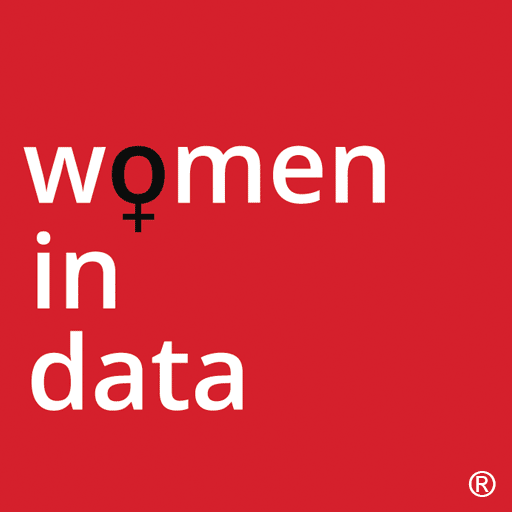
Data and AI are no longer just everyday tools – they are catalysts for transformational change. From reshaping how we interact with our environment to revolutionising access to essential services like healthcare and education, their potential to address society’s most pressing challenges is profound.
In healthcare, longstanding research gaps and systemic biases have led to disparities in diagnosis, treatment, and patient care – issues that disproportionately affect women. This is a cause close to our hearts, and it’s why we collaborate with academic experts to advance the healthcare agenda through our Women’s Health initiative.
Kubrick and Women in Data® have supported Professor Coziana Ciurtin, a researcher who specialises in rheumatology at University College London UCL. Her work seeks to understand the highly disproportion rate at which many autoimmune conditions affect women. With women making up around 90% of those diagnosed, Systemic Lupus Erythematosus (SLE) is a striking example of gender disparity in autoimmune diseases.
This talk is one of the interesting talks as part of our ‘Data for Good’ stage at Big Data London, where Mirela Gyurova, one of Kubrick’s Data Scientists and part of our Women’s Health Initiative will be able to tell you more about this impactful project.
Systemic Lupus Erythematosus (SLE) is a chronic autoimmune disease. It causes the body’s immune system to attack its own healthy tissues. It can impact multiple organs and systems, including the skin, joints, kidneys, brain, and heart. Whilst symptoms vary, they widely include fatigue, joint pain, kidney inflammation and a butterfly-shaped rash. As a disease, it can be unpredictable with those affected experiencing flare ups.
Hormonal influence: Estrogen, a hormone more prevalent in women, plays a role in triggering autoimmune responses. Whilst it can modulate immune system activity, it can potentially increase the risk of autoimmunity in genetically predisposed individuals.
Genetic factors: Women have two X chromosomes, and variations in how these chromosomes are inactivated in cells may influence immune system behaviour. This chromosomal difference may partly explain why autoimmune diseases like lupus are more common in women.
Environmental and epigenetic triggers: While genetics set the stage, environmental factors including infections, stress, and exposure to sunlight and can activate lupus in susceptible individuals and may interact differently with female biology.
Immune system differences: Women generally have more robust immune responses than men, which is beneficial for fighting infections, however this can also increase the risk of the immune system turning against the body itself.
Professor Ciurtin’s hypothesis aimed to prove that research conducted using Machine Learning (ML) techniques for analysis of patient data did not adequately acknowledge and address potential gender biases. Given the notable female sex bias in the prevalence of SLE, any biases in ML techniques and data used pose a significant threat to effective research and treatment by further exacerbating the disparity.
 Volunteers from Kubrick and Women’s in Data® sought to test this hypothesis by conducting a systematic review of available research papers to assess the extent to which the research acknowledged and remediated potential biases in both their data and its analysis. It also acknowledged the application of Machine Learning.
Volunteers from Kubrick and Women’s in Data® sought to test this hypothesis by conducting a systematic review of available research papers to assess the extent to which the research acknowledged and remediated potential biases in both their data and its analysis. It also acknowledged the application of Machine Learning.
The team supported Professor Ciurtin by scoping, designing, and delivering a collection of resources to support her work, beginning with advisory support on the how to assess the sex bias remediation in machine learning as well as quality assess machine learning best practice. Together, they created a revolutionary project brief to compare human-led systematic reviews of research literature with the capabilities of GenAI to understand it’s possible application to expedite and improve the systematic review cycle.
During a 8-month period, the team created a unique GenAI tool which can help detect bias in research papers. This research reveals the major benefits of using GenAI for preliminary assessment of niche and novel topics, including sex bias in ML research for SLE and highlights the success of accelerating research and hypothesis testing from months to hours – overcoming the vast challenges associated with life sciences in the digital age.
The team found fewer that 2% of ML research papers on Lupus acknowledged and acted upon sex bias in the data, while over 55% didn’t mention it at all – indicating that there is still a large gap in understanding sex bias in research.
In the world of healthcare research, and across not-for-profit initiatives, limited resource and investment is often the ultimate roadblock to exploration and innovation. This GenAI tool can help undertake preliminary hypothesis testing and identity potential new areas of focus. As a result, Researchers can gain greater confidence in their work, identify opportunities for research all whilst minimising hours of sifting through existing research.
If Gender bias in the healthcare sector is of interest to you and your team, you can hear more about this innovative use case by Kubrick’s Mirela Gyurova supporting the research of Professor Coziana Ciurtin at UCL during the talk at Big Data London on 24th-25th September. Entitled AI for Heath Equity: A Double Edged Sword, they share the story behind their GenAI tool which can revolutionise underfunded and underexplored areas of medical research, including identifying ML-enforced biases.
The tool has already opened the Professor’s work to further applications across her field of Rheumatology and beyond.
Fill out the form below to receive our comprehensive partnership brochure.

